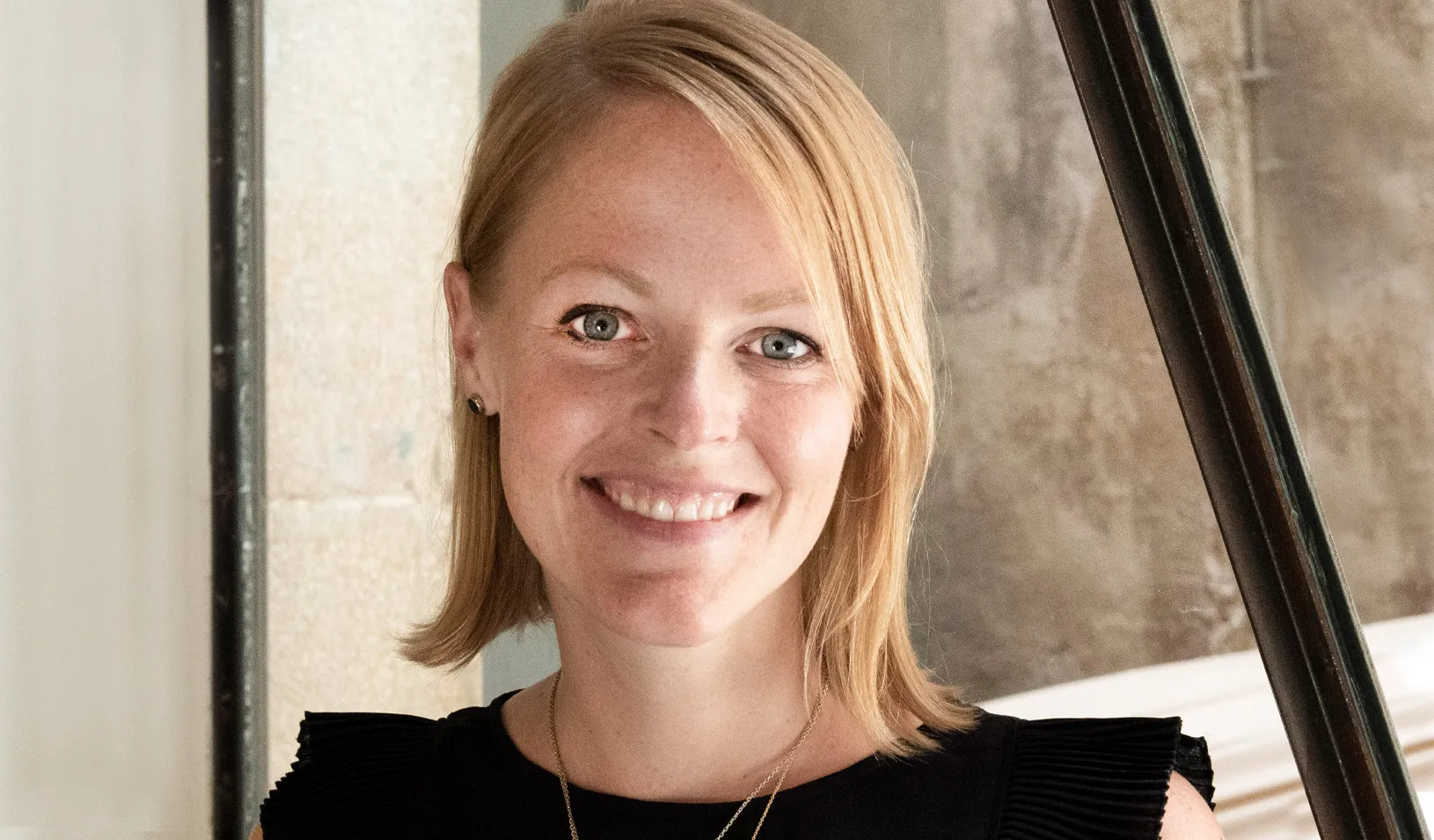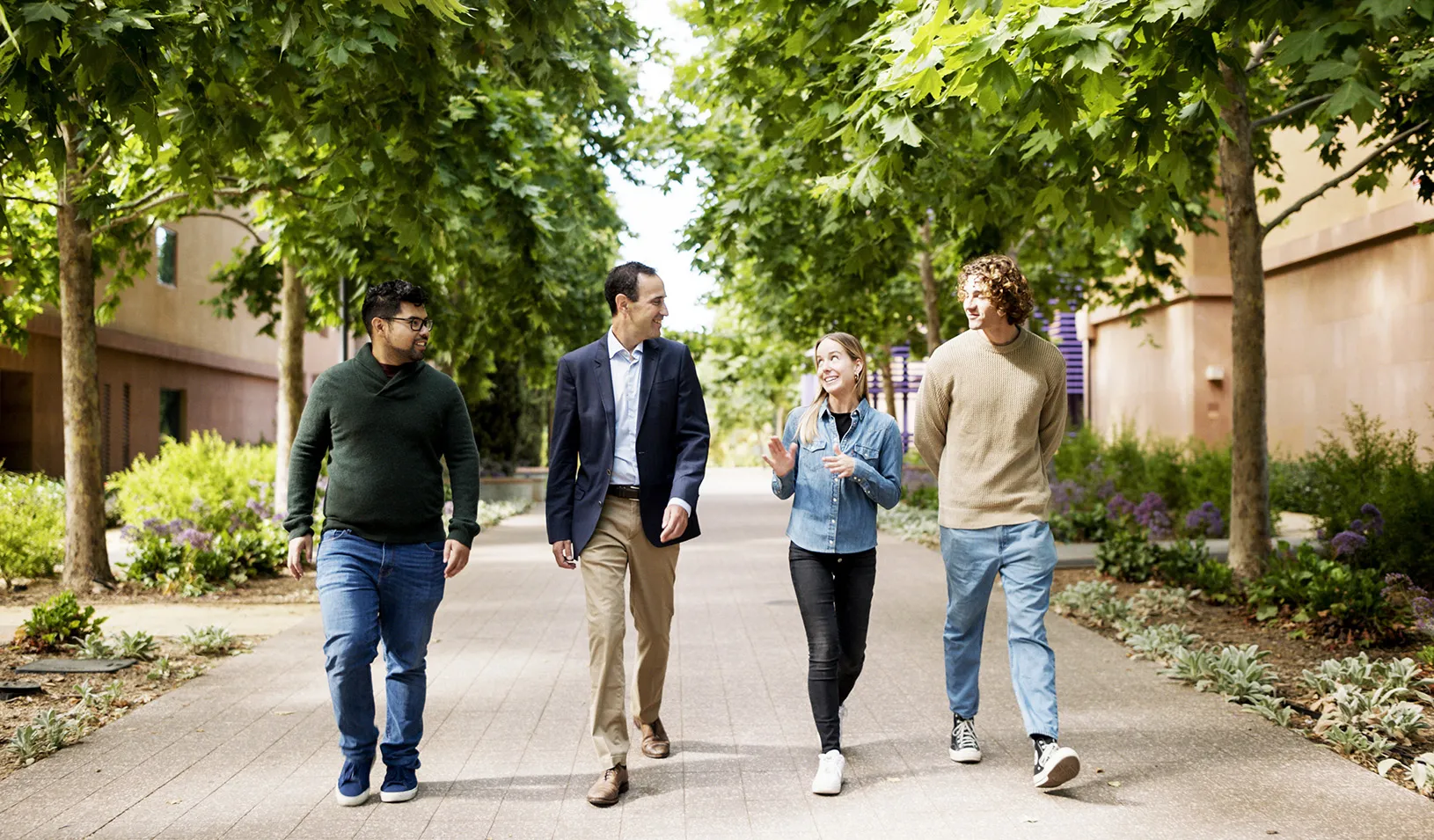Alleviating Poverty in Africa and Indonesia Through Sustainable Palm Oil Production
Helping guide transformation of the global palm oil sector by developing strategies to sustain industry growth while enhancing rural incomes, alleviating poverty, and reducing tropical deforestation.
April 06, 2017

Stanford earth system science professor and lifelong environmentalist Rosamond Naylor has always had a strong interest in addressing inequality and poverty. Her passion has led her to Indonesia, Ghana, and Cameroon, where she heads a research project backed by the Stanford Global Development and Poverty Initiative to try to avert a crisis threatening both the livelihoods of local farmers and the global environment.
The focus of Naylor’s research is palm oil, a ubiquitous ingredient found in an estimated 50 percent of the packaged items we purchase at the grocery store. Most processing of the palm fruit is controlled by large multinational companies, but the rest — the majority in West Africa and about 40 percent in Indonesia — is managed by poor smallholder farmer. In an attempt to compete in the market and lift themselves out of crushing poverty, these farmers cut and burn swaths of priceless natural forest, destroying habitat and emitting damaging greenhouse gases and regional air pollutants into the environment.
“These are women and men who really have almost nothing, who are surviving day in and day out just by producing a few bunches of this fruit, and are very anxious to improve their livelihoods,” Naylor said. “They really don’t have any notion of whether they’re destroying the environment or not; they’re just trying to feed their families.”
As large multinational companies increasingly turn their attention toward environmental strategies, including zero-deforestation measures, the ability to source from independent smallholders and remain green is significantly reduced. Most corporate palm oil production now comes from Southeast Asia, but as companies move to West and Central Africa, where the potential for oil palm expansion is greater, mass production could threaten the ability of small farmers in these areas to survive.
It’s difficult to imagine a person more qualified to help navigate a solution than Naylor, who is an economist and serves as the director of Stanford’s Center on Food Security and the Environment. She’s getting that chance thanks to a global poverty research award from the Stanford Institute for Innovation in Developing Economies, or Stanford Seed, in partnership with the Freeman Spogli Institute for International Studies. Stanford Seed, led by Stanford Graduate School of Business, funds multiple international research projects, with the goal of ending the cycle of poverty in developing economies. It also operates the Seed Transformation Program for high-potential company leaders based in developing economies, along with the Seed Internship Program, which offers Stanford students an opportunity to undertake projects at the participating companies.
The challenge for Naylor’s team is formidable: finding a way for large multinational companies to halt deforestation and continue to be profitable, while allowing for the increased participation of independent farmers.
“How do we make palm oil production more green, but include smallholders and alleviate poverty at the same time?” Naylor said. “How can you lessen that trade-off, have smallholders involved, and not destroy the forest?”

Rosamond Naylor
Many multinational companies are working to be more environmentally responsible, but if they choose to eliminate small farmers from the mix, the result will be worsening regional poverty. Aiming to prevent that, Naylor leads a collaborative, academically diverse team composed of Stanford student and faculty researchers from the departments of earth system science and economics, as well as Stanford Graduate School of Business. Team members work on the ground with company leaders, farmers, policymakers, and nongovernmental organizations to investigate the issue from all perspectives. Their goal is to transform the way that companies and governments operate in the massive palm oil space.
“The power of multidisciplinary work and engaging all parts of this university in this effort is absolutely essential,” Naylor said. “If it was the business school only, they might not know anything about land use change, or peat burning, or how that peat burning causes air pollution, or they might not have a poverty alleviation strategy; they’d just be working in a bubble. By engaging teams like we have, you can really get at the key trade-offs and key difficulties that policymakers and companies face day in and day out when they’re trying to deal with these issues.”
The wide-ranging data that Naylor and her team collect has the potential to generate solutions that could be used throughout the industry to improve countless lives and protect fragile ecosystems, according to Gil-li Vardi, Seed’s director of faculty engagement and research.
“If you really want to potentially change the lives of billions, and you want to do it in a meaningful way, I think research is key,” Vardi said. “It’s only when scholars from different departments are talking about their challenges and research that true interdisciplinary ideas can thrive. For me, that’s the key to success.”

The two-year project won’t end when the research team leaves, Naylor said. Team members already are collaborating with groups such as Indonesia’s Poverty Reduction Task Force, and have hired research experts from countries including Cameroon to help establish a long-term program.
“We’re trying to build capacity,” Naylor said. “That means actually getting people in these countries to take on this project themselves and take it forward without any Stanford assistance overall.”
For now, however, the goal is to leverage the resources of the university and Stanford Seed to help transform the entire industry into one that allows both companies and small stakeholders to profit while creating an environmentally sustainable product.
“The goal is to actually make a difference in the real world, and in some ways, we have to change the whole sector,” Naylor said. “I feel that being here at Stanford, we can get visibility on this issue, so that we can then engage more companies and more researchers into a unified goal here.
“What matters most to me is that people have a dignified life,” she added. “They don’t have to be rich, but a dignified life does mean being able to feed your family and being able to enjoy your surroundings and not live in what I would call a hellhole of environmental destruction, or a hellhole of poverty. That’s what matters most to me.”
For media inquiries, visit the Newsroom.
Explore More
Erin Nixon Joins Stanford GSB as Assistant Dean of Admissions

Nia Rose Froome, MBA ’23: Making Local, Fresh Food Available for All

New Research Fund Promotes Responsible Leadership for the Next Century
